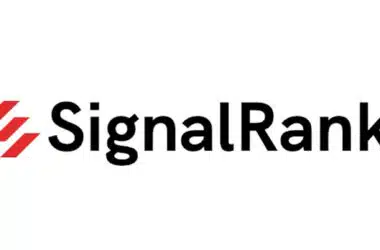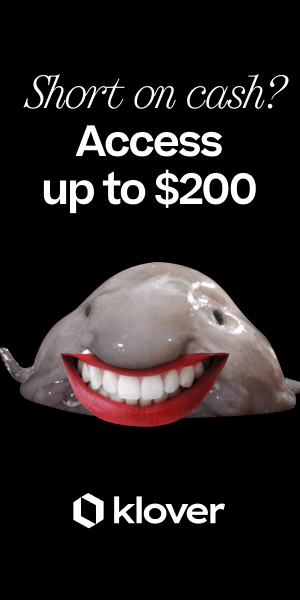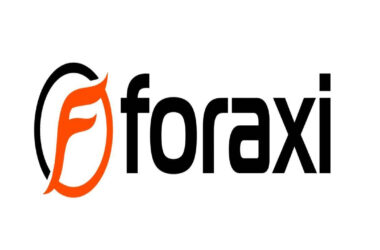If you’re interviewing for a job in the fintech sector, it can be daunting. You may not know exactly what to expect or how to prepare, but don’t worry. We’ve got you covered! In this article, we’ll discuss the most common fintech interview questions and provide advice on how to answer them. From discussing the fintech sector and its challenges to understanding what employers are looking for, we’ll help you make sure you’re ready for your interview. So read on to get prepared and ace that fintech interview!
Table of Contents
Q1- Tell us about yourself.
This is a common interview question that interviewers like to open with and it’s used to gain an understanding of your background, experience, and personality. It is also a great icebreaker and puts the interviewee at ease.
To answer this question effectively, start by briefly introducing yourself and highlighting your most significant achievements or experiences related to the position. Then, focus on your relevant skills, strengths, and unique qualities that make you a valuable candidate. It’s crucial to be concise, confident, and positive in your response. Avoid mentioning personal information that’s not relevant to the job, most interviewees get too comfortable and start discussing irrelevant personal information. Remember, the interviewers do not want to know about your personal life, they were just breaking ice and wanted to know about your professional aspirations.
Here is an example of how a fresh graduate should answer this question
“I am a recent graduate with a degree in Marketing and Communications. During my time at university, I completed an internship with ABC agency where I gained hands-on experience in managing social media accounts and organizing events. I am passionate about digital marketing and have been following the latest trends and technologies in the industry. In my free time, I enjoy reading and volunteering at a local animal shelter. I am looking forward to applying my knowledge and creativity to help your company grow its online presence and engage with customers.”
Q2- Can you tell us about your short and long-term career goals?
Interviewers ask this question to understand your motivation, ambition, and how well you fit into the company’s culture and goals.
When answering this question, it’s important to be honest and realistic about your goals. Start by discussing your short-term goals, which should be specific and achievable within the next few years. For example, if you are interviewing for a financial analyst position, your short-term goal could be to gain experience in financial modeling and analysis to become a proficient analyst.
Next, discuss your long-term goals, which should demonstrate your vision and aspirations for your career. For instance, you might say that you aspire to become a senior financial analyst or portfolio manager in the future. It’s crucial to show how your long-term goals align with the role and the company’s values and mission, for this you`ll need to study the company you are applying for beforehand.
Here’s an example of how to answer this question:
“My short-term goal is to gain experience in financial analysis and modeling and develop my skills to become a proficient analyst. I am excited about the opportunity to work with a renowned team of analysts and learn from their expertise. In the long term, I aspire to become a portfolio manager and lead a team of analysts to achieve exceptional returns for our clients. I believe that your company’s focus on innovation and client satisfaction aligns with my long-term goals and values, and I look forward to contributing to your success.”
Q3- Do you possess theoretical expertise or practical know-how in Fintech?
Sooner or later, all interviewers ask this question to gauge the candidate’s level of knowledge and experience in fintech and to determine if their skills align with the job requirements.
When answering this question, be transparent about your level of expertise in fintech. The interviewers already have your resume, so they already know what skills you have but by asking this question they want to figure out the depth of your skills. If you have theoretical knowledge but no practical experience, you can emphasize your understanding of fintech concepts, trends, and technologies. Additionally, you can highlight any relevant coursework, certifications, or training programs that you have completed.
On the other hand, if you have practical know-how in fintech, you can discuss your hands-on experience in implementing fintech solutions and managing financial operations. You can provide examples of projects or initiatives that you have worked on and how they have contributed to the company’s success.
By showcasing your willingness to learn and adapt to new technologies and trends, you can leave a positive impression on the interviewer and differentiate yourself from other candidates.
Here’s an example of how to answer this question:
“I possess both theoretical expertise and practical know-how in fintech. During my time in university, I studied finance and completed several courses on fintech topics such as blockchain, AI, and digital payments. Additionally, I have been working as a financial analyst for the past two years, where I have gained hands-on experience in implementing fintech solutions to improve financial processes and deliver value to clients. For example, I was part of a team that implemented a machine learning algorithm to predict stock prices, which resulted in a 10% increase in returns for our clients. I am passionate about fintech and constantly seek to learn and stay up-to-date with the latest trends and technologies.”
Q4- Can you tell us about your familiarity with our company and what motivates you to seek employment here? We are eager to learn more about your interest in joining our team.
Interviewers throw this question towards the end of the interview. The purpose of this question is to understand your knowledge of the company, its mission, and values, as well as your motivation for seeking employment.
In order to answer this question effectively, it’s essential to research the company beforehand and familiarize yourself with its products, services, and recent news. Additionally, try to learn about the company’s culture and values, and how they align with your own career goals and aspirations.
When answering, start by explaining your understanding of the company and its products or services. Discuss why you are interested in the company and how you believe your skills, experience, and values align with its mission and goals. You can also highlight any recent news or accomplishments by the company that stands out to you.
It’s important to be genuine and demonstrate a passion for the opportunity to work for the company. Showing how your skills, interest, and values align with the company’s mission can help you stand out as a strong candidate.
Here’s an example of how to answer this question:
“I have been following your company for some time now and am impressed by your commitment to innovation and customer satisfaction. I’m particularly interested in how your products and services leverage AI and machine learning to streamline financial processes and provide value to customers. I appreciate how your focus on improving access to financial technology aligns with my own career goals and long-term vision for the industry.
I am excited about the prospect of joining your team, where I can leverage my skills in data analysis and project management to drive business growth and contribute to new, innovative solutions for your clients. Your company’s reputation for excellence and commitment to diversity and inclusion also motivates me to seek employment here. I believe that your culture and values are a great fit for my own, and I look forward to contributing to the success of your organization.”
Q5- What was the most recent skill you learned?
This question is used to assess whether you are open to learning and adjusting to the latest technologies and trends in the fintech industry. When answering this question, it’s essential, to be honest and specific about the skill you have recently learned. You can discuss any relevant course, certification, or training program that you have completed, as well as how you plan to apply this skill to the job.
It’s also crucial to highlight why you chose to learn this particular skill and how it aligns with your career goals and interests. By demonstrating your passion and curiosity for fintech, you can leave a positive impression on the interviewer and show that you are committed to continuous learning and professional development.
Here’s an example of how to answer this question:
“The most recent skill I learned was Python programming language. I completed an online course on Python for data analysis, which helped me develop my skills in data manipulation, visualization, and machine learning. I was interested in learning Python because it’s a widely used language in fintech for building financial models and automating financial processes. In my current role as a financial analyst, I plan to use Python to build predictive models and generate insights that can help our clients make informed investment decisions. I am excited about the opportunities that Python can bring to our team and look forward to expanding my knowledge in this area.”
Q6- Let’s talk about the obstacles you’ve encountered in your previous roles. What were they and how did you overcome them?
Interviewers ask this question to assess your problem-solving abilities, adaptability, and resilience in challenging situations.
When answering this question, it’s essential to provide specific examples of obstacles you have faced in your previous roles and how you overcame them. Focus on the strategies you employed, the resources you utilized, and the lessons you learned from the experience. This will demonstrate your ability to analyze problems, develop effective solutions, and grow from challenges.
It’s also important to show that you can maintain a positive attitude and stay focused on your goals, even when faced with difficulties. By discussing your obstacles and how you overcame them, you can prove to the interviewer that you are a resilient, adaptable, and resourceful candidate who can thrive in a dynamic fintech environment.
Here’s an example of how to answer this question:
“In my previous role as a financial analyst, one of the obstacles I encountered was managing a high volume of data from various sources. The challenge was to consolidate and analyze this data accurately and efficiently. To overcome this obstacle, I researched and implemented a new data management tool that automated the data consolidation process and improved the accuracy of our analysis. This not only saved time but also allowed us to provide more reliable insights for our clients. Additionally, I attended a training program on data analytics to further enhance my skills in handling large datasets. Through this experience, I learned the importance of continuously improving my technical skills and staying proactive in finding solutions to challenges that arise.”
Q7- What special talents or abilities do you possess that make you the perfect fit for this position?
Interviewers ask this question to understand what unique qualities and skills you can bring to the role and the company, and how these will contribute to their success.
When answering this question, it’s essential to focus on your strengths and experiences that are directly relevant to the job requirements. Discuss specific examples of how you have demonstrated these talents or abilities in previous roles, and how they have contributed to positive outcomes. This will help the interviewer visualize how you can apply these skills in the context of their organization.
It’s also important to convey your enthusiasm for the role and your belief in the value you can bring to the company. By confidently articulating your unique talents and abilities, you can differentiate yourself from other candidates and leave a lasting impression on the interviewer.
Here’s an example of how to answer this question:
“One of the special talents I possess is my ability to quickly learn and adapt to new technologies and tools. In my previous role as a financial analyst, I was responsible for implementing a new data analytics platform. Despite having no prior experience with the platform, I took the initiative to attend training sessions and study online resources to become proficient in its use. Within a few weeks, I was able to fully integrate the platform into our workflow, leading to a 20% increase in efficiency and more accurate insights for our clients. Additionally, my strong communication skills enable me to effectively collaborate with cross-functional teams and present complex financial information in a clear and concise manner. I believe these abilities make me a perfect fit for this position, as they align with the requirements of the role and the fast-paced nature of the fintech industry.”
In conclusion, fintech interviews often focus on assessing your technical knowledge, practical experience, and adaptability in the rapidly evolving financial landscape. By understanding the most commonly asked questions, you can better prepare yourself to showcase your skills, passion, and unique qualities that make you a strong fit for the role. Key areas to emphasize include your ability to learn new technologies, problem-solving skills, communication abilities, and alignment with the company’s goals and culture.
It’s essential for you to provide specific examples from your past experiences, demonstrate your willingness to grow professionally, and convey enthusiasm for the position throughout the interview process. By doing so, you can leave a lasting impression on the interviewer and increase your chances of securing a coveted role in the competitive fintech industry. Remember, thorough preparation, self-awareness, and confidence are crucial factors in successfully navigating fintech interviews and landing the perfect job opportunity.















Recent Comments